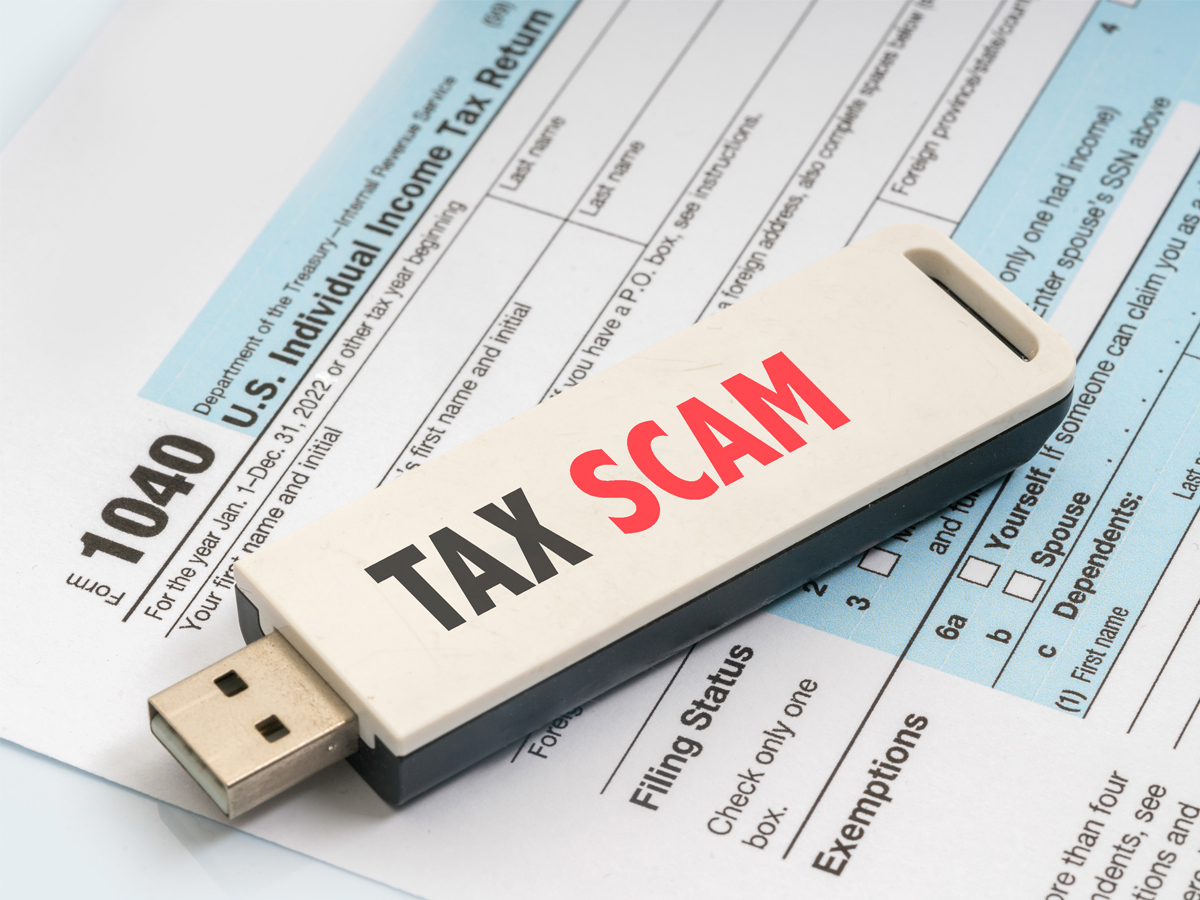 Fraud
FraudMarch 8, 2023
How to Prepare for Tax Scam Season
How to Prepare for Tax Scam Season
Tax scams have become more common, more sophisticated, and more expensive. They’re all versions of “imposter scams” – someone pretending to be someone that they’re not. In 2021, consumers reported losing over $4 million to scammers pretending to be IRS representatives, and that’s’ only the losses reported to the FTC.
Your best defense is information; when you know the most common scams as well as how the IRS really works, the differences are clear. These tips and reminders can help keep you safe through Tax Day and beyond.
Don’t fall for “spoofing.”
Spoofing is a form of high-tech disguise used by scammers. Fraudsters can trick your Caller ID into identifying their call or text message as coming from the IRS. They can also arrange for their private email accounts to appear in your inbox as .gov addresses; these emails link to “spoofed” websites that they created to look identical to real government websites.
If you receive an initial phone call, text, or email from anyone claiming to be an IRS agent, you can be fairly certain that it’s a scammer. If you have any doubt, start a fresh search for the real IRS website or local office, and contact them through an official channel. Never use any contact method from the call, text, or email.
Red Flags:
The goal of IRS scams is to pressure you into acting out of emotion. They’ll try to frighten you with threats of legal action or immediate arrest, or they’ll try to excite you with promises of an unexpected refund or rebate.
Consider it a tip-off if the alleged IRS agent does any of the following:
- Demands immediate payment/action
- Requests your credit/debit card information for payment or for bank account numbers to make a deposit
- Requires specific and unusual methods of payment, such as wire transfers, prepaid debit cards, or gift cards
- Threatens to revoke a license, immigration status, or Social Security Number
As a fact check for these scam tactics, remember: The IRS will offer short- and long-term payment plans, and all payments will be to “U.S. Treasury.” They send refunds through USPS by paper check; they’ll only use their direct deposit option if you gave them written permission on the corresponding return. Also, the IRS has no authority over business licenses, drivers’ licenses, deportation, or SSNs.
Pro Tip: The IRS uses snail mail
If the IRS has questions for you, they’ll send written notice via First-Class Mail. If it’s a serious matter that requires haste and tracking, they’ll use Certified Mail. Be suspicious of any notification that arrives by phone or email.
Watch out for fraudulent tax preparers.
As Tax Day draws closer, the lure of hiring a tax preparer increases. It’s especially tempting if they promise a larger refund than other preparers can deliver. That should be your first indication that you’re dealing with a scammer. Fraudulent tax preparers will take your money, file a fraudulent tax return in your name, and leave you alone to deal with the costly fallout.
Red Flags:
Only trust your taxes to preparers who behave in a professional, legal manner. Watch for these warning signs of a scammer:
- Requests for your tax documents and confidential information as soon as you inquire
- Promises of improbably large refunds
- Requests for you to sign a blank or incomplete return or to sign in pencil
- Fees incurred as a percentage of your refund
- Disinterest in your records
Pro Tip: Check the preparer’s credentials
As a first step, ask for a Preparer Tax Identification Number (PTIN). Having a PTIN means that your tax preparer has registered with the IRS. This is the minimum legal requirement to charge money for tax preparation; it gives you no guarantee of their ability, so go one step further.
Check their PTIN against the IRS’s online Preparer database. This listing includes only those preparers who have professional credentials (such as CPAs) and who’ve completed Continuing Education classes on the latest tax laws and codes. You can also search this database to find professional tax preparers in your area.
Tax season can be stressful. It’s particularly difficult after any major life event that changes your filing status or adds new schedules to your return. The best way to proceed is to stay aware of tax scams, consult credentialed professionals when needed, and file your return on time.

